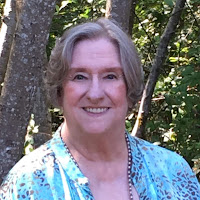Working Together for the Benefit of All
At one point in my life I did post-graduate work at the University of Montana in Missoula. I decided to do a research project on the History of Music in Missoula, 1865-1890. I spent one summer reading microfilm of Montana newspapers to find not only the occasions that mentioned music, but also to determine what was being performed and by whom.
After the Civil War, there was an influx of southern men to Montana Territory looking for gold. Mining camps sprang up all along the rivers that flowed out of the Rocky Mountains and these migrants brought with them the culture of their Appalachian heritage.
An article in the newspaper, whether from Virginia City, Missoula or Anaconda, might read,
"We were entertained on Saturday last by music performed by the sheriff, the barber and other members of our community, playing on their fiddles, banjo and mandolins. Community inhabitants filled the saloon and expressed their delight."
A few inches down the page, there might be another article that read,
"We were pleased to have music at the Sunday church service this week when the local sheriff, barber and other individuals played their fiddles, banjo and mandolins. The service was held in the saloon because it was the largest room in town."
Music For the Community
It was the individuals working together for the benefit of all that built the sense of community for these early settlements. As the local industries--mining, lumbering or ranching--succeeded or failed, the towns grew or became ghost towns. Towns began depending on touring professionals and the university for entertainment. Either way, that early community participation became less prominent.
Genealogy Programs For the Community
We can apply that same principle of "working together for the benefit of all" to the recent pandemic events and their effect on our genealogical community. Some genealogical societies were able to survive the lockdown by going virtual and maintaining programs for their members.
April 2020, South King County Genealogical Society presented its first virtual general meeting including Immigration, a presentation featuring Barbara Mattoon, our president. The online meeting was well attended and at the close of the meeting, nobody wanted to leave.
Within weeks SKCGS was presenting virtual special interest groups, virtual speakers for our general meetings and even doing genealogy presentations for the Burien branch of the King County Library System. We learned how to manage both the Google and Zoom platforms as well as our own software. And, when Winona Laird's internet went down in the middle of her presentation, Valorie and I did about a 45 minute ad lib. I don't remember what we talked about but apparently everybody enjoyed it.
Some SKCGS members stepped up to do presentations; others became instrumental in developing the technology to continue our virtual program. Fortunately we had the budget which made it possible for us to book professional speakers for virtual presentations. We flourished, gaining new members from all over the nation.

Collaboration With the Community
We have come out of lockdown with a continuing sense of community cooperation. The White River Valley Museum from here in Auburn is doing a presentation for our October general meeting. Members of the society are working on the Black Miners of Franklin project for the Black Diamond Historical Society and Museum. And the Des Moines Historical Society has requested us to do a presentation for them. We also have our Genealogy Help sessions at the library. And, while we have been able to book some super speakers from around the country on wonderful topics, we are trying to use speakers from our own membership as well.Not all genealogy societies in Washington state have been as successful. At a recent Meet & Greet of the Washington State Genealogical Society and Washington Presidents Council, the problems smaller societies are facing was a topic of discussion.
How can societies find speakers inexpensively? Maybe societies could swap presentations with each other. Societies may have members who can present at other societies. WSGS should expand the Speakers Bureau list on its website.*
Let's Collaborate For the Community
What a great idea! Many of us have presentations we have developed on various topics. How about revisiting them, updating information and links as needed and making ourselves available to other societies? I have two or three I would be happy to do again. For that matter, I might do them again for TUG since the topics are timeless and we are always getting new members.
Maybe you have a topic you would like to present. Let us know by contacting Valorie at v.zimmerman@skcgs.org. Don't know how to construct a slideshow? Let us help you learn; maybe we can do a workshop in TUG about this. Also, you can do practice presentations for our special interest groups to help build your confidence!
Most of all, let's continue that sense of community among our societies "working together for the benefit of all".
---
* This is being done: see WSGS Local Speakers' Directory.







Comments
Post a Comment